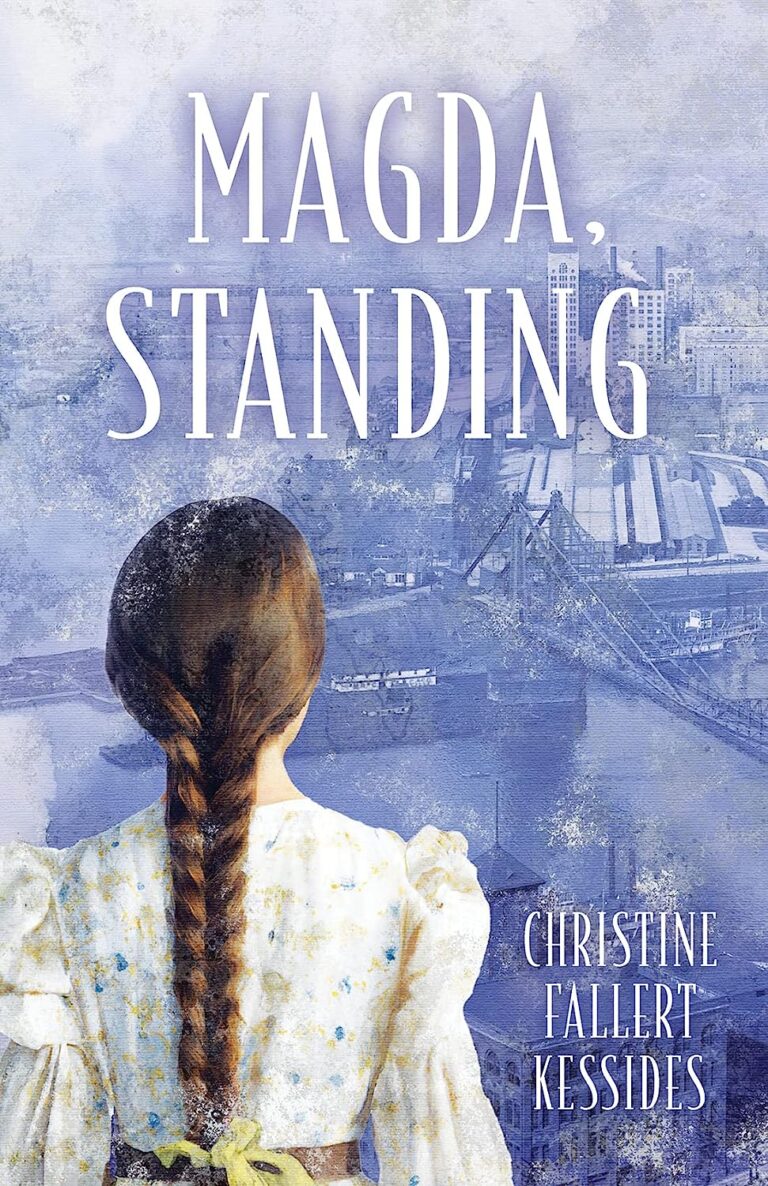
Magda, Standing received a 4+ star review, making it an IndieReader Approved title.
Following find an interview with author Christine Fallert Kessides.
What is the name of the book and when was it published?
Magda, Standing – Released by Bold Story Press June 13, 2023.
What’s the book’s first line?
“Magda was tall enough now to look eye level at the principal.”
What’s the book about? Give us the “pitch”.
A teenager in 1916 Pittsburgh surmounts crises in her German immigrant family during WWI and the Spanish flu.
What inspired you to write the book? A particular person? An event?
When I researched my genealogy and all the ancestors I found, on both sides of my family, were German immigrants from the mid-late 1800s, I became a little obsessed with learning more about where they came from and why, and then I wanted to blend this context with what I know of my grandparents’ families in the era of WWI and the Spanish flu.
What’s the main reason someone should really read this book?
The teen protagonist faces numerous challenges–obstacles to education, the constraints of family demands and cultural expectations, mental illness of a parent, violence and death from global war and a pandemic–in an era (1916-19) that was over a century ago, but resonates today.
What’s the most distinctive thing about the main character? Who-real or fictional-would you say the character reminds you of?
Magda is very persistent in pursuing her educational and professional goals, while opening her heart to the problems and potential of others around her. Readers say she reminds them of Francie in A Tree Grows in Brooklyn. I think their internal journeys from girlhood to young womanhood are somewhat the same, but Magda faces more intense external setbacks to her ambitions.
When did you first decide to become an author?
I was an “institutional writer” in my career, but I felt the urge to translate my longstanding interest in history into writing this novel after I retired and shortly before the pandemic.
Is this the first book you’ve written?
As fiction, yes. I wrote book-length economic policy reports for a living. The requirements of personal discipline, acceptance of criticism, and willingness to revise drafts were practices that remained familiar as I wrote the novel.
What do you do for work when you’re not writing?
I’m very involved with a nonprofit that financially supports women and families in need. Volunteering has kept me in touch with a wide range of people and led to many new friendships as well.
How much time do you generally spend on your writing?
On average, 2-3 hours a day, but many days those hours are actually spent in related reading and research, as well as looking for interesting and sometimes irrelevant distractions whenever possible.
What’s the best and the hardest part of being an indie?
My indie publisher, Bold Story Press, allowed me total artistic freedom while giving the manuscript tough love from professional editors, designers and producers. The hardest part was probably finding it to begin with, since I didn’t know anything about hybrid publishing.
What’s a great piece of advice that you can share with fellow indie authors?
I hadn’t realized that publicity and marketing would become almost as much a preoccupation as the actual writing. There’s lots of great advice and helpful experts for this stage, but as an indie author you need to become your book’s strongest advocate.
Would you go traditional if a publisher came calling? If so, why?
For a next book I would probably also explore traditional publishing, as I did initially for Magda, Standing. I would consider the terms offered and know better how to compare it to what I experienced with my hybrid publisher.
Is there something in particular that motivates you (fame? fortune?)
I am motivated to share stories. I don’t care to sell books that sit on a shelf if no one cracks them open. I’d love if dog-eared copies get passed around to many readers who talk about Magda, Standing with their friends, fellow students and teachers.
Which writer, living or dead, do you most admire?
I love good historical fiction, since it delivers knowledge of other times and past events as well as a compelling plot and characters. Among current HF writers I most admire Geraldine Brooks and Ruta Sepetys.
Which book do you wish you could have written?
Any of the HF novels those two women have written! I just finished I Must Betray You by Ruta Sepetys and I guess I wish I could have written that one, since I actually traveled to Romania in that tortured period and knew colleagues there. But we weren’t free to communicate and I wasn’t sufficiently attuned to the pervasive suffering that is so eloquently described in that book.
